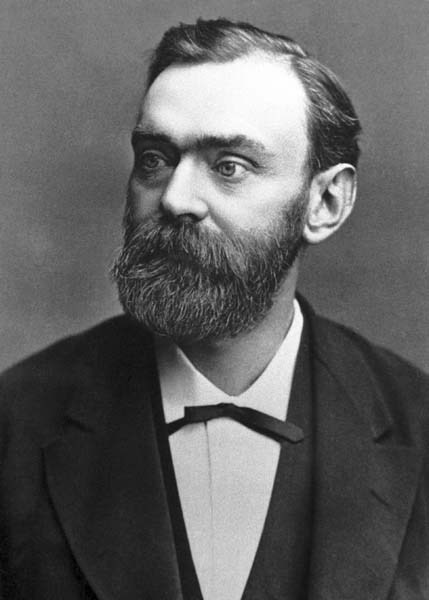BBH Feature: Why You “SNOOZE the Day” Instead of “SEIZE the Day”
We all know that we procrastinate.
It some ways it makes no sense, but in many other ways it makes perfect sense.
Read on and you’ll soon understand a surprising reason why we do it.
And as a result, you’ll hopefully understand how to procrastinate less. (Let’s be realistic and not assume that you and I will never procrastinate again! 
The Man Who Got His Wish

Flickr by NS Newsflash
I heard of a legend I heard about a man who really wanted to know where the stock market would be in 30 days.
Why?
Because he figured that if he could predict the level of the market at the end of 30 days, then he could invest his assets in such a way that he would make enough money to be secure for the rest of his life!
When that happened, he imagined, it would make his life predictable.
It would allow him to eliminate all those constantly changing surprises that life brings.
Then it happened.
One morning he got up and found on his door step a copy of the New York Times dated 30 days in advance. It was a miracle!
So what did he do?
He grabbed it and ran to the kitchen table and spread it out looking, of course, for the financial section.
It was the opportunity of a lifetime!
But as he searched for the financial section, his eyes unintentionally fell upon the obituary column.
And when he saw it, he couldn’t resist the impulse to just take a look.
But he wasn’t prepared for what he saw next.
As he read, he froze because there in the obituary column he saw his own name listed – just 30 days away!
Now nothing else mattered. Surprise! THAT view of the future changed everything!
“We’ll have all eternity to celebrate our victories, but only one short hour before sunset to win them.” – Robert Moffat
So Little Time, So Much to Do. Then Why Do We Procrastinate So Much?

Flickr by Rennett Stowe
There is so much to accomplish in life, so much to experience in life, so much to enjoy, but there’s one problem. There is so little time for it all.
You’d think that this fact would cause us to SEIZE the day, but many times it causes us to instead “SNOOZE the day” – we procrastinate and waste so many of our so few days.
There are two reasons that explain why we do this:
1. The “planning fallacy” is a tendency for people to underestimate how long they will need to complete a task, even when they have experience of similar tasks over-running.
The Psychology Students and Their Senior Theses
In a 1994 study, 37 psychology students were asked to estimate how long it would take to finish their senior theses.
The average estimate was 33.9 days.
They also estimated how long it would take “if everything went as well as it possibly could” (averaging 27.4 days) and “if everything went as poorly as it possibly could” (averaging 48.6 days).
But guess what? The majority of student were WRONG in their estimates!
The average actual completion time was 55.5 days, with only about 30% of the students completing their thesis in the amount of time they predicted.
So why do we procrastinate?
One of the reasons we procrastinate because we think we can get more done in our day, or lifetime, than we actually can.
But there’s another reason we procrastinate…
2. “Parkinson’s law” is the saying which states that “It is a commonplace observation that work expands so as to fill the time available for its completion.”
That means if you have TWO days to do a project you’ll take TWO days. If you have two WEEKS to do the same project, you’ll take two WEEKS!
So the second reason we procrastinate is because we think we have more TIME than we ACTUALLY do. (This is true in regards to our day and our lives!)
And since we think we have plenty of time, we stretch out the work that needs to be done.
That first story I began with is a “legend” and you probably thought it was interesting, but had no basis in reality.
Well, you’re right. That story is NOT based on fact.
But there is a surprisingly similar story that is TRUE. And the lesson you can learn from it is just as powerful.
Read on to see what I mean…
The Man Who REALLY Did Read His Own Obituary

Akfred Nobel 1885
Believe it or not, one morning in 1888 Alfred Nobel, the inventor of dynamite, awoke to read his own obituary.
But Alfred didn’t receive some magical newspaper.
The obituary was printed as a result of a journalist’s error.
You see, it was Alfred’s brother that had died and the reporter mistakenly reported the death of the wrong brother.
Any person would be disturbed under the circumstances, so you can imagine how Alfred felt.
But for Alfred the shock was especially overwhelming, because he saw himself as the world saw him.
The obituary had labeled Alfred as the “Dynamite King,” the great industrialist who had made an immense fortune from explosives.
As Alfred read his own obituary, he realized that this, as far as the general public was concerned, was the entire purpose of his life.
None of his true intentions to break down the barriers that separated men and ideas for peace were recognized or given serious consideration.
He was simply a merchant of death.
In that moment, he realized that that alone was how he would be remembered.
As he read the obituary with horror, he decided then and there that he would make it clear to the world the true meaning and purpose of his life.
But HOW would he do it?
With the vast fortune he had accumulated from inventing dynamite.
In his last will and testament, he set up an endowment of five annual prizes for outstanding contributions in physics, chemistry, physiology or medicine, literature, and peace (the sixth category of economics was added later).
He did this to establish the expression of his life’s ideals and to change the way the world remembered him.
And guess what? It worked!
The result was the most valuable of prize given to those who had done the most for the cause of world peace.
You might have heard of it. It is called today, the “Nobel Peace Prize.”
Today is the Day to Change Your Legacy
Alfred Nobel had a unique experience. Most of us will never get to read our own obituary.
But some day your obituary WILL be written.
WHAT is written about will depend on your decisions today, because tomorrow might never come.
3 Suggestions of What You Can Do to Procrastinate Less
So what can you do about this? Here are three suggestions:
1. You must take an honest look at “the obituary” you’ve left to be written about you up to this point.
Are you proud of it or ashamed of it? Does it include all of the things you hoped it would up to this point? Either way, let that realistic look at your life inspire you to action
2. You must remember the fact that Robert Moffat revealed: you only have “one short hour before sunset to win.”
Begin believing that you have LESS time then you think you actually do. Less time in your day. Less time in your life.
And what if you end up with more time than you think? You’ll be glad you lived like you didn’t, because you will have achieved more than you would have if you believed otherwise.
3. Don’t let yourself fall for the “planning fallacy.” You actually CAN’T get as much done as you think you can.
So eliminate some some of your plans (that are overwhelming you anyway!) and decide that – if you really can only accomplish less – what those few important things will be.
It won’t lessen your ability to accomplish things.
It won’t cause you to set your sights lower.
It will enable you to set your sights, in regards to those fewer things, much higher and actually accomplish those fewer things in greater ways that would have ever been possible.
So stop hitting “snooze” in your life and beginning “seizing” each day!


